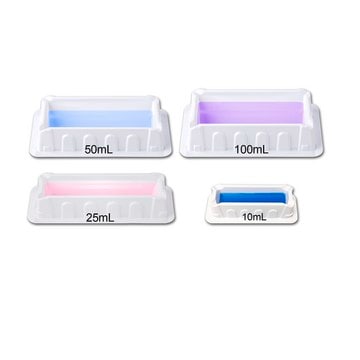推荐产品
形狀
liquid
包裝
pkg of 10 × 0.05 g (10 vials)
pkg of 10 μg (1 vial)
製造商/商標名
NIST®
應用
genomic analysis
儲存溫度
−20°C
一般說明
Human DNA for Whole-Genome Variant Assessment Reference Material (RM) is intended for validation, optimization, and process evaluation purposes. It consists of a male whole human genome sample of East Asian (Chinese) ancestry from the Personal Genome Project (ID hu91BD69). A unit of RM 8393 consists of a vial containing human genomic DNA extracted from a single large growth of human lymphoblastoid cell line GM24631 (labeled as HG-005) from the Coriell Institute for Medical Research (Camden, NJ).
SRM 8393_SDS
SRM 8393_Cert
SRM 8393_SDS
SRM 8393_Cert
應用
Human DNA for Whole-Genome Variant Assessment Reference Material (RM) is intended for assessing the performance of human genome sequencing variant calling by obtaining estimates of true positives, false positives, and false negatives. Sequencing applications could include:
- whole genome sequencing
- whole exome sequencing
- targeted sequencing such as gene panels
特點和優勢
- This reference material contains isolated DNA rather than live cells and is intended for research use.
- An extensive report of the investigation is available through NIST.
- Information values are provided for single nucleotide variations (SNVs), small insertions and deletions (indels), and homozygous reference genotypes.
其他說明
- RM 8393 is stored at –20 °C at NIST but will be shipped in freezer packs and may not arrive frozen.
- Details on expiration, storage, safety, usage, and source are provided in the NIST certificate.
- Information on biomaterials, disposal, and transport is available in the SDS.
法律資訊
NIST is a registered trademark of National Institute of Standards and Technology
SRM is a registered trademark of National Institute of Standards and Technology
相關產品
产品编号
说明
价格
Megan H Cleveland et al.
The Journal of molecular diagnostics : JMD, 20(5), 583-590 (2018-07-01)
The National Institute of Standards and Technology has developed reference materials for five human genomes. DNA aliquots are available for purchase, and the data, analyses, and high-confidence small variant and homozygous reference calls are freely available on the web. These
Bennett O V Shum et al.
The Journal of molecular diagnostics : JMD, 19(4), 602-612 (2017-05-16)
The sensitivity and specificity of next-generation sequencing laboratory developed tests (LDTs) are typically determined by an analyte-specific approach. Analyte-specific validations use disease-specific controls to assess an LDT's ability to detect known pathogenic variants. Alternatively, a methods-based approach can be used
我们的科学家团队拥有各种研究领域经验,包括生命科学、材料科学、化学合成、色谱、分析及许多其他领域.
联系技术服务部门




